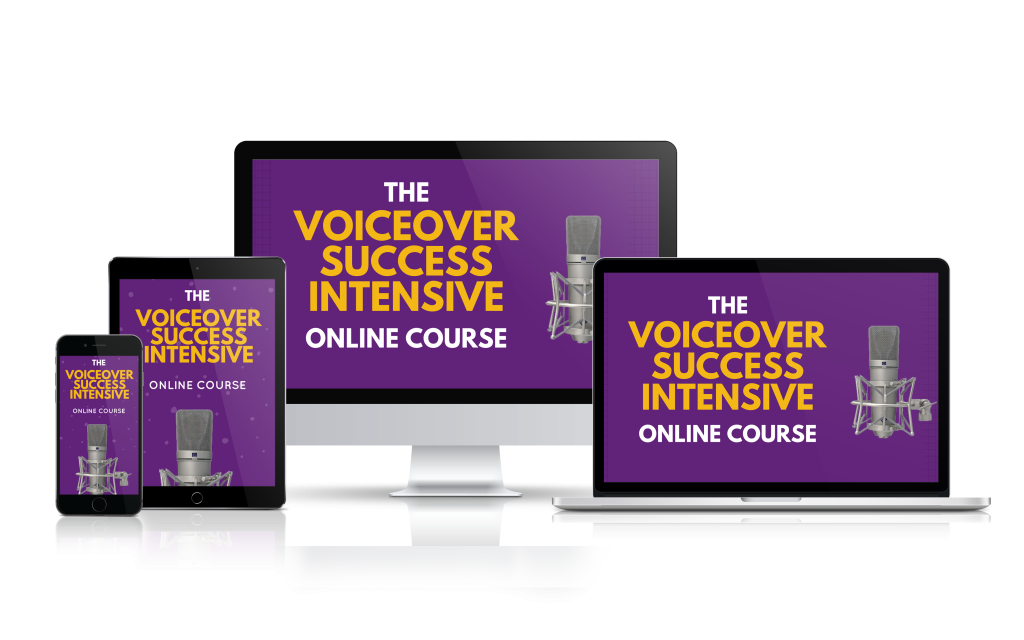
How to Win Voiceover Jobs
Voiceover is a performance-based profession, which tends to draw people who (surprise, surprise) like to perform. But the real surprise is that many people who are very talented at performing, can’t cut it in voiceover. This is because it takes more than being able to do voices well. Winning voice over jobs or getting premium voiceover job's salary takes more than technical skill or voice quality.
You have to be willing to tap into the humanness of each character you portray.
And to be able to get this, you have to have high emotional intelligence to be a good voice over artist.
You have to have high emotional intelligence to be a good voice over artist. #vo #voactor #VOtips
How to Win Voiceover Jobs
Using Emotional Intelligence as a Voice Actor
Wikipedia defines emotional intelligence as the capacity to understand the intentions, motivations, and desires of other people. This ability is what takes a read from mediocre to excellent.
When you’re doing VO, it should affect you on an emotional level. There is a shift that you can almost see take place when a voice actor gets from that place of, “just reading” to “being the character.” Sometimes it’s evidenced by a more intimate tone that I describe as “leaning in.” Sometimes it is characterized by more thoughtful intonations and use of “white space” (or silences, or beats). This is essentially how to get voice over job opportunities —tapping into your humanness to be able to connect with your audience (which is the #1 goal for any voice over job you will get!).
So how do you increase your emotional intelligence so that you can deliver more captivating reads?
Improve your emotional intelligence to get more voice over jobs
1. Take note of how you are feeling.
It’s easy to go through your day without ever really reflecting on your emotions and what caused them. Try to be intentional about stopping to think about why you had certain reactions. For example, when a friend tells you about a sweet, expensive vacation they have planned for the summer, and your initial reaction is to roll your eyes and then change the subject, take a moment to put words to your feelings. “I was jealous of Dave when he said he was taking his family to Cancun.” But don’t stop there. “I felt jealous because Cancun is my dream vacation spot, but my kids are too young for a trip like that.”
2. Take note of how you’re moving.
Physicality is a big part of delivering a believable voiceover read. Everything from hand gestures to facial expressions, and even your posture. But moving your body in ways that don’t match up with real emotions will not help your reads. In fact, it will hurt them. So start to connect the dots between how you’re feeling and how you’re moving. This Psychology Today article says that you can increase your emotional intelligence (or EI) by tapping into this connection. For example, when you’re excited, your heart might start to beat fast, and your shoulders may tense up
3. Let yourself feel fully.
In other words, don’t be too quick to “edit” the way you are feeling or brush off your emotions. Give yourself the chance to experience every wave of each emotion fully. The only way you’ll be able to genuinely tap into those emotions for a voiceover read is if you’ve been there before. Not allowing yourself to feel will inhibit your ability to portray those emotions in a convincing way. Your audience, who you are trying to connect with on an emotional level, will be able to quickly perceive that you are faking it.
The Danger of Overthinking and Overdoing
Becoming a successful voice actor isn’t easy, but putting unnecessary extra time and energy into auditions doesn’t always result in more jobs. You need to give it your best effort and remember that a more relaxed approach sometimes leads to a more impressive performance.
How to get voice over work by stepping back and letting things flow.

Don’t Over-Rehearse
Few voice artists want to record an audition cold, yet reading it through too many times can make the text sound robotic. You’ll be in your own head if you get too obsessed with getting it right, and it will show in the recording. To keep it fresh, step back from the audition text and return to it with a new frame of mind.

Don’t Get Too Stuck on Punctuation
It’s important to respect the client by adhering closely to the script, but don’t get so obsessed with accuracy that you forget to bring emotion to the read. Like any actor presented with a script, you want to demonstrate your ability to bring the words to life in a way that impresses on tape.
Don’t be afraid to read a period as if it’s a semicolon or comma, especially if it flows with the character you’re choosing to create. You may surprise yourself at how allowing genuine feelings to come through has a lasting effect; always leave room for those surprises.

Don’t Obsess Over Client Expectations
You don’t know what the client is looking for in your read. Playing that guessing game, especially when it goes against your strengths and instincts as a performer, will not only drive you crazy — it won’t necessarily get you the job. Bring your own take to the read. After all, they wouldn’t have asked you to audition if you sounded like everyone else.

Don’t Record Too Many Auditions
Like any actor, you have to try out for many roles to find the best work. There are a lot of free voice acting auditions in the market. Yet to avoid reaching the point of diminishing returns, make sure you focus on the auditions that are a good match for your voice. You’ll get better results overall and you’ll make it easier to develop your personal brand as a voice artist.

Do Visualize the Scene
Your read is better the more you can immerse yourself into the scene. But it’s not always possible to create a recording environment that lets you fully imagine the world of your audition script. In your prep time between auditions, develop a few go-to characters that will help you enter the mindset of a particular type of read. It will save you time and give you a few more skills you can present on a moment’s notice.

Do Trust Your Instincts
You are a professional voice artist, so you know what makes a strong recording. You won’t know what’s in the minds of casting agents when they send out a call for auditions; therefore, use your training and instincts to bring the right emotion and intonation to your performance. Being true to your own interpretation of the script will make things even easier when you get the job.

Do Have Fun
There’s an old saying that you should smile when you’re on the phone, because the smile will come through in your voice. The same is true with doing voice over online. If you’re not having fun, you can bet the casting agent will notice. Even a dramatic and sorrowful scene is enhanced when the actor is engaged with the text. Imagine doing cartoon voice over jobs—you need to be as animated as the character you are voicing out!

Do Let It Go
You’ve done your best and sent off the audition. Now let it go! Remember that you can’t change it now, and agonizing over your performance won’t help. Always keep moving forward — the next audition is just around the corner.
It is disconcerting to let yourself be raw for a voiceover job. But the results are so rewarding. #vo #voactor #VOtips
Try these tips on for size, and see if you don’t see a marked improvement in the believability of your reads!
Learn how to get voice over jobs with the Voiceover Success Intensive
To give yourself the best chances of success in the industry, you need to surround yourself with support, encouragement, and honest feedback. The route to VO success requires a lot of work and perseverance. If you're in this for the long haul (to earn a solid stream of income from voiceover work), you'll get there much faster--and avoid burnout--with the right people and support system on your side.
Get equipped with the knowledge you need to confidently build a profitable voiceover business.
Become a member, get your voiceover business started right, and learn how to get voice over work with the The Voiceover Success Intensive.


